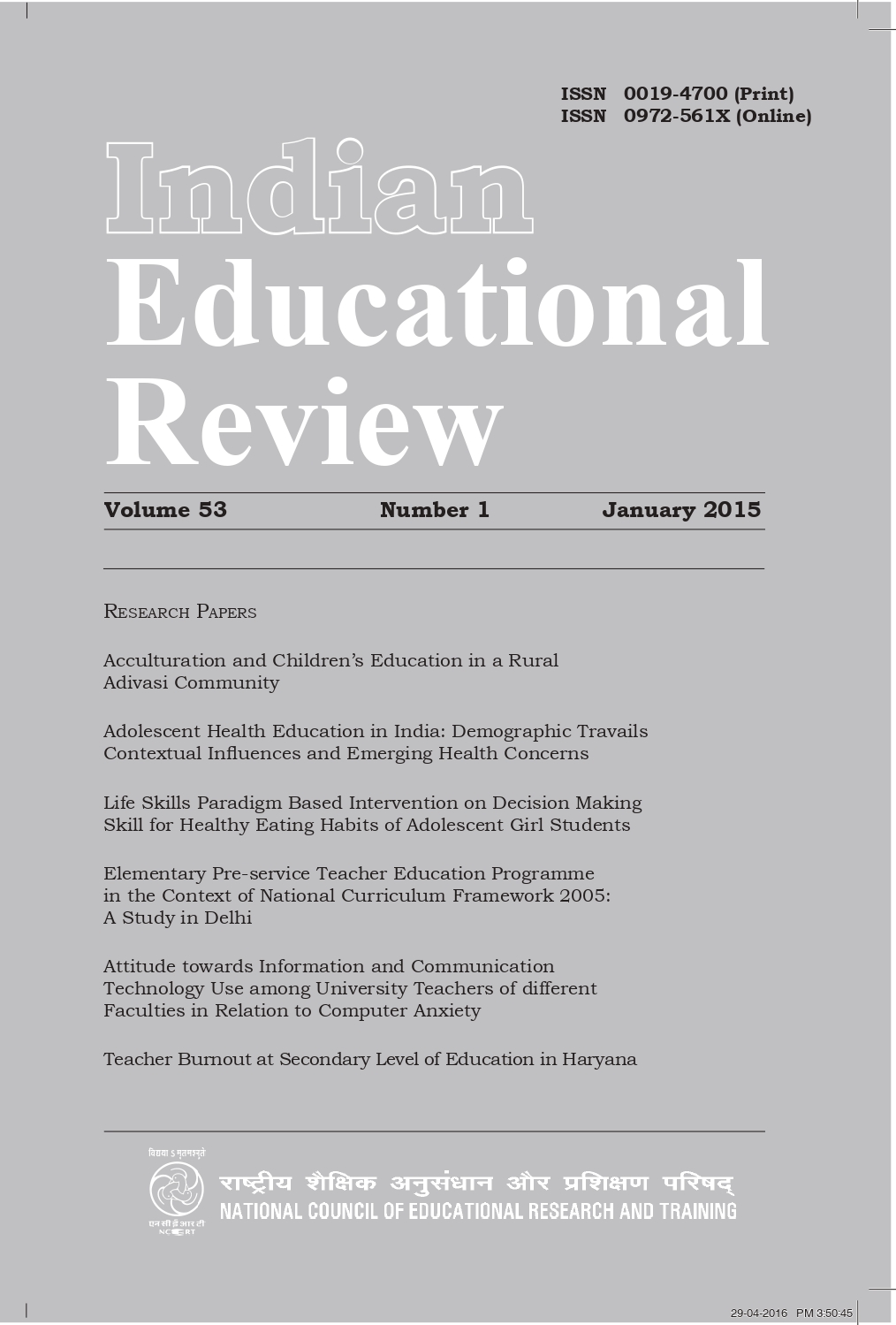Strategies Adopted for Enrolling Girls in Kasturba Gandhi Balika Vidyalayas Managed by Different Agencies in Andhra Pradesh, Bihar and Gujarat An Exploratory Study
Published 2024-12-31
Keywords
- District Primary Education Programme,
- Elementary Education
How to Cite
Abstract
The nation is committed to promote gender equality and education to all children up to the age of 14. The Right of Children to Free and Compulsory Education Act, 2009 has made Universalisation of Elementary Education justifiable. Further, for promoting equity and equality to all, the Constitution empowers the States to adopt measures of affirmative discrimination in favour of women and imposes a fundamental duty on every citizen to renounce practices derogatory to the dignity of women. The government has initiated several schemes and programmes to increase accessibility to education even among the marginalised communities. With an objective to bridge gender disparities in education with a special focus on girls from the most marginalised communities, the country has launched popular programmes , such as District Primary Education Programme (DPEP), 1994; the Sarva Shiksha Abhiyan (SSA), 2001; and the latest being the Rashtriya Madhyamik Shiksha Abhiyan (RMSA), 2010. The two promising programmes conceptualised under SSA for addressing gender disparity in education at the elementary stage are National Programme for Education of Girls at Elementary Level (NPEGEL) 2003, and the Kasturba Gandhi Balika Vidyalaya (KGBV) 2004, which became an integral part of SSA in 2007. KGBV is a unique formal intervention of providing residential cum schooling facilities at the elementary stage to cover a large section of out of school girls across the country.

